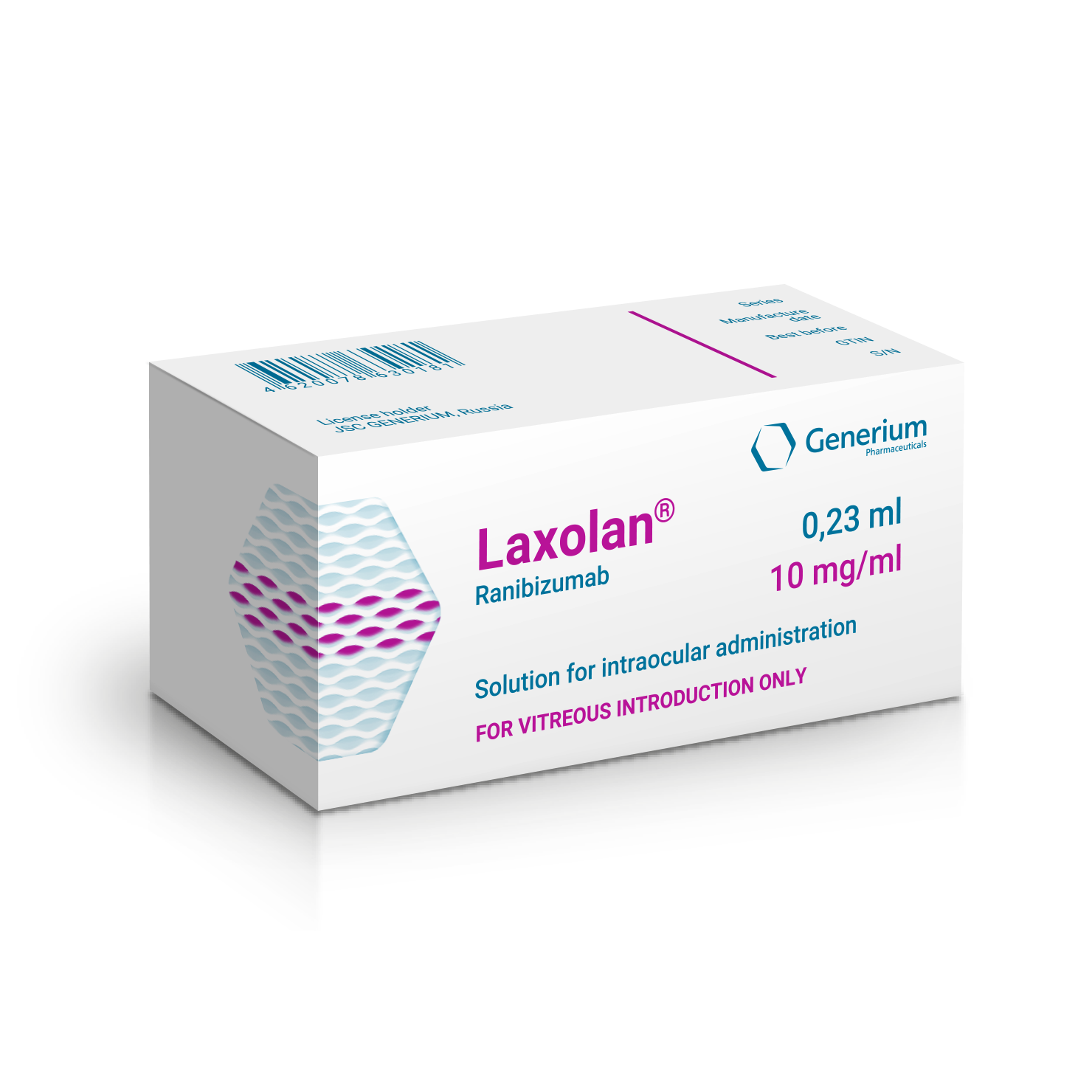GENERIUM has registered a biosimilar of ranibizumab, a medicine for treatment of age-related macular degeneration

Age-related macular degeneration (AMD) is a chronic, progressive, multifactorial disease that is the leading cause of central vision loss and visual disability among older people.
There are two forms of age-related macular degeneration: dry and wet. The wet form is the most dangerous. This type of macular damage progresses rapidly and is accompanied by rapid vision loss. In this form of the disease, abnormal formation of blood vessels occurs under the retina in the macula area. New vessels have increased fragility and permeability, which can lead to hemorrhage with the development of macular edema and retinal damage. Treatment of the wet form of age-related macular degeneration of the retina is aimed at preventing growth of pathological vessels in the retinal area and preventing complications.
“In the world, ranibizumab was the first medicine capable of restoring functionally significant vision in many patients with wet AMD and significantly reducing the risk of progression of blindness,” said Daniil Talyansky, General Director of GENERIUM. “The launch of a biosimilar of ranibizumab in the Russian market will increase availability of the expensive therapy for patients.”
According to research, in 2020 there were more than 196 million patients with age-related macular degeneration in the world, and by 2040 the number of such patients is expected to increase to 288 million. In the Russian Federation, there are more than 320 thousand patients with degeneration of the macula and posterior pole.
The medication has been used in world medicine for more than 15 years. Currently, its use is approved in 85 countries for the treatment of wet AMD, diabetic retinopathy and other retinal diseases.
